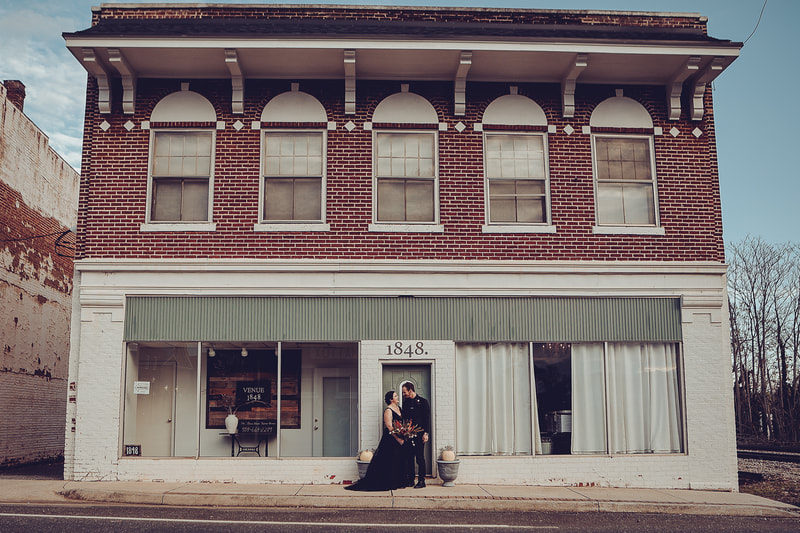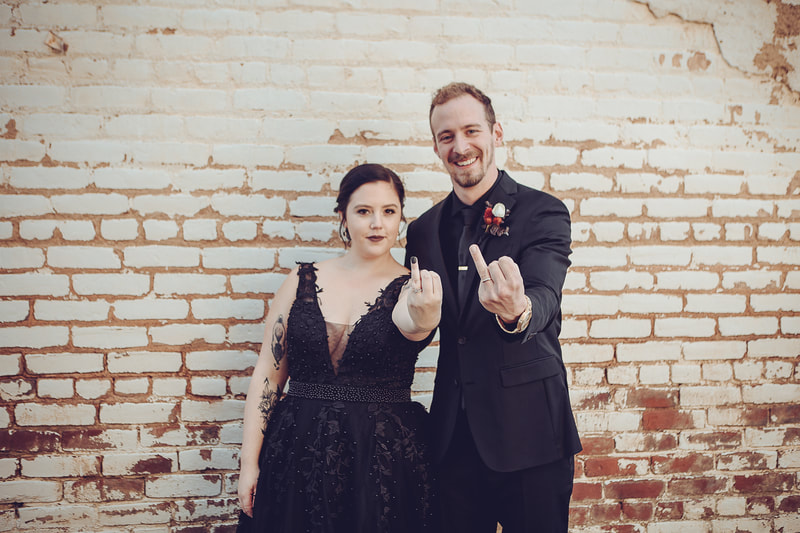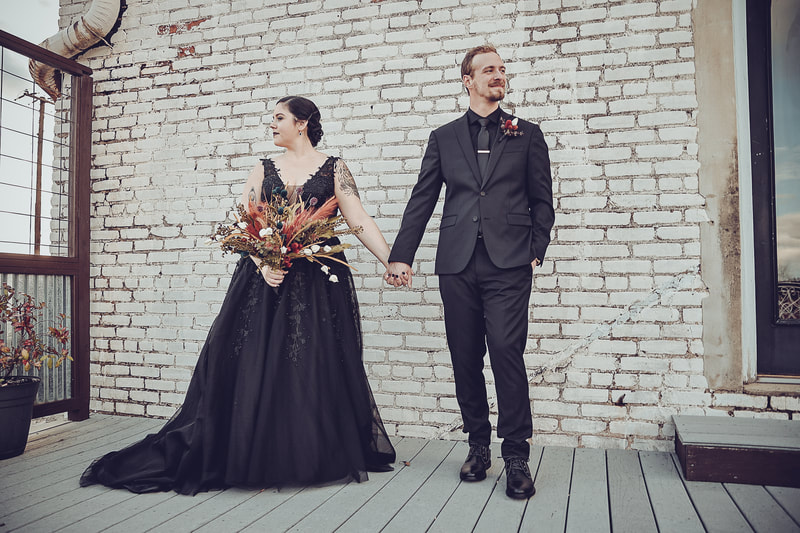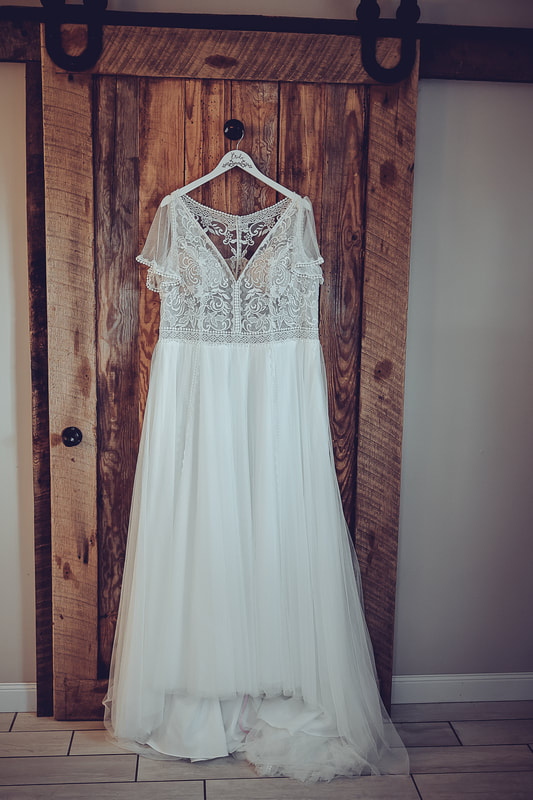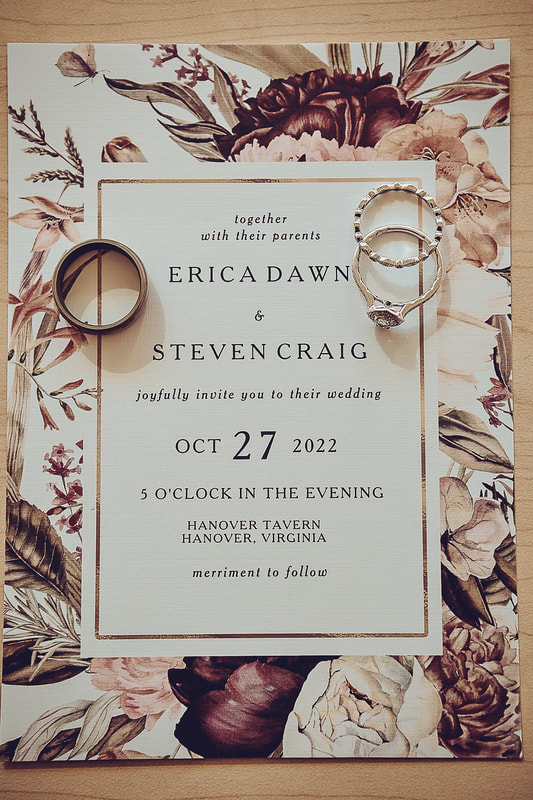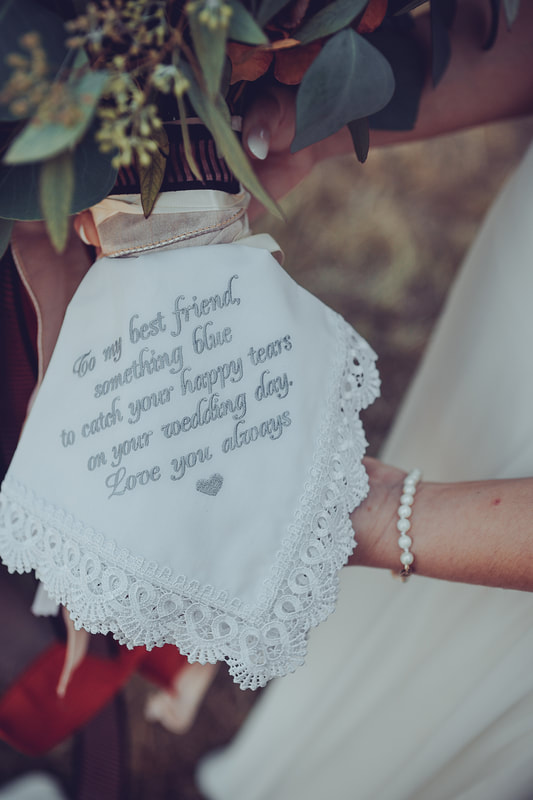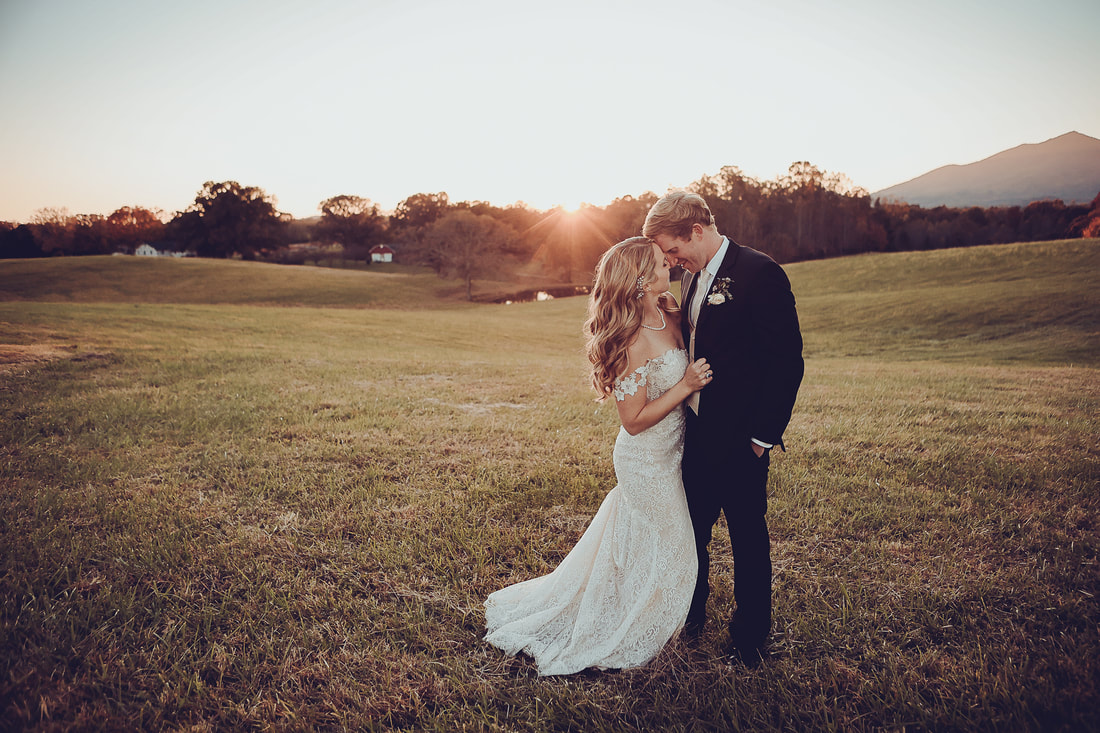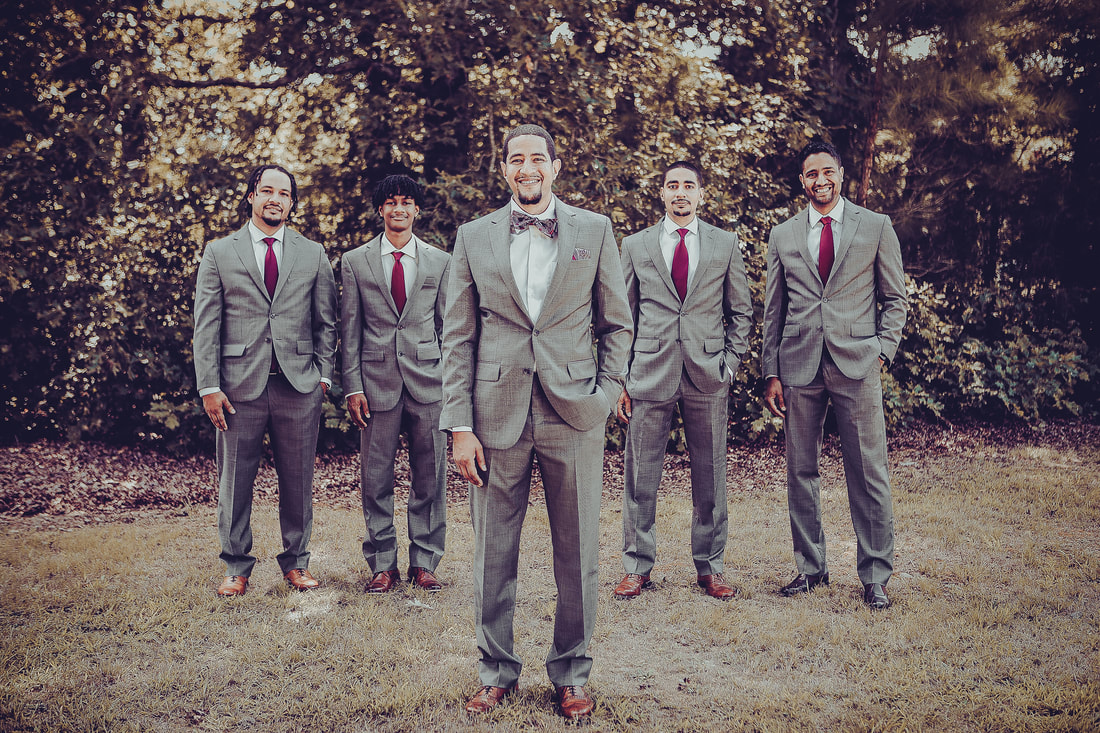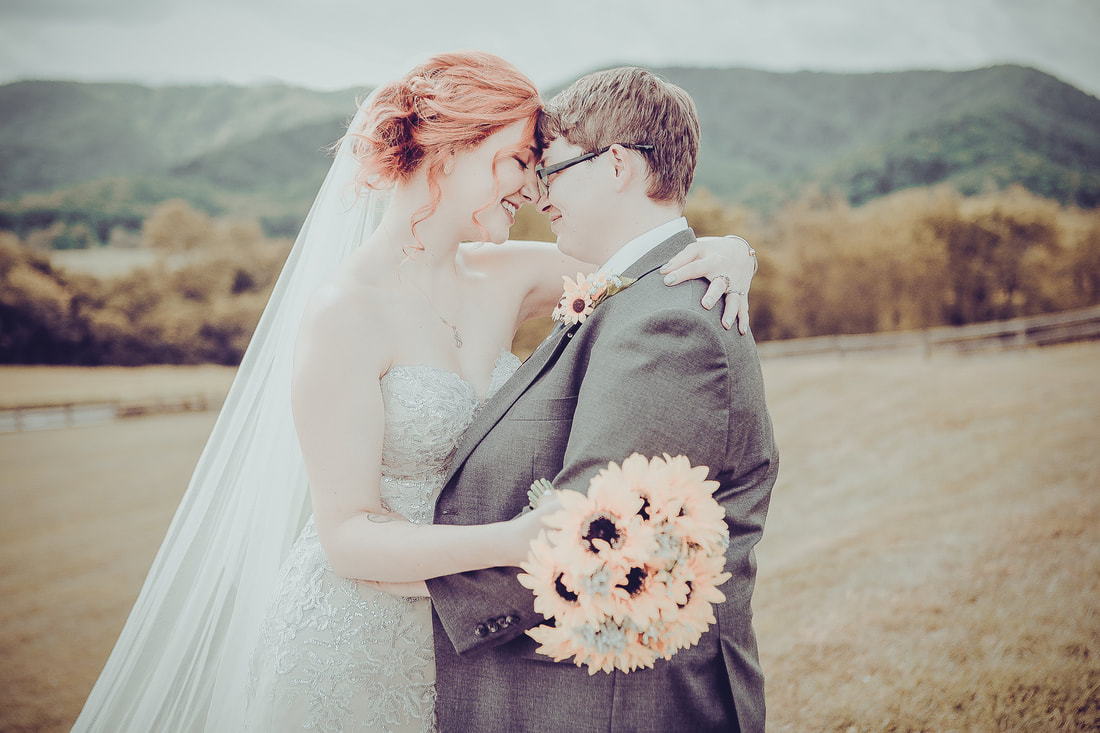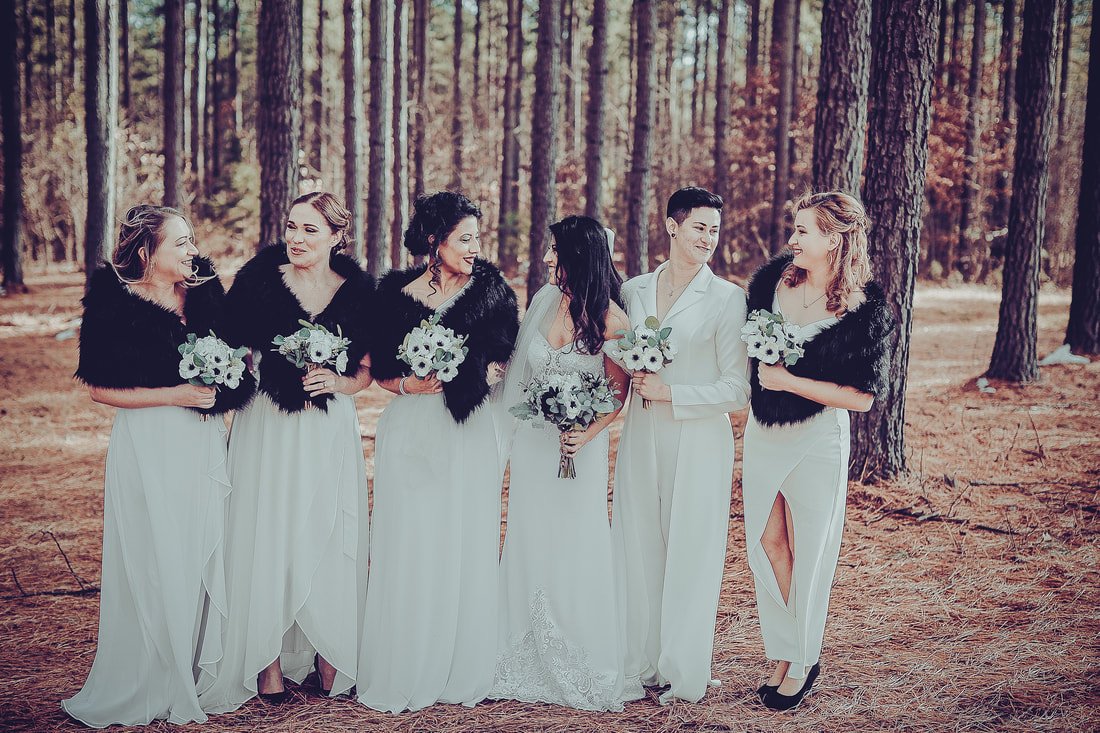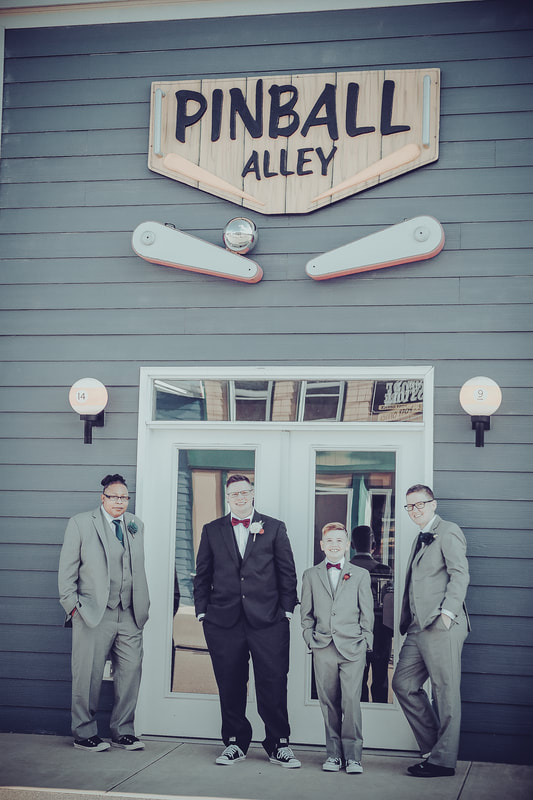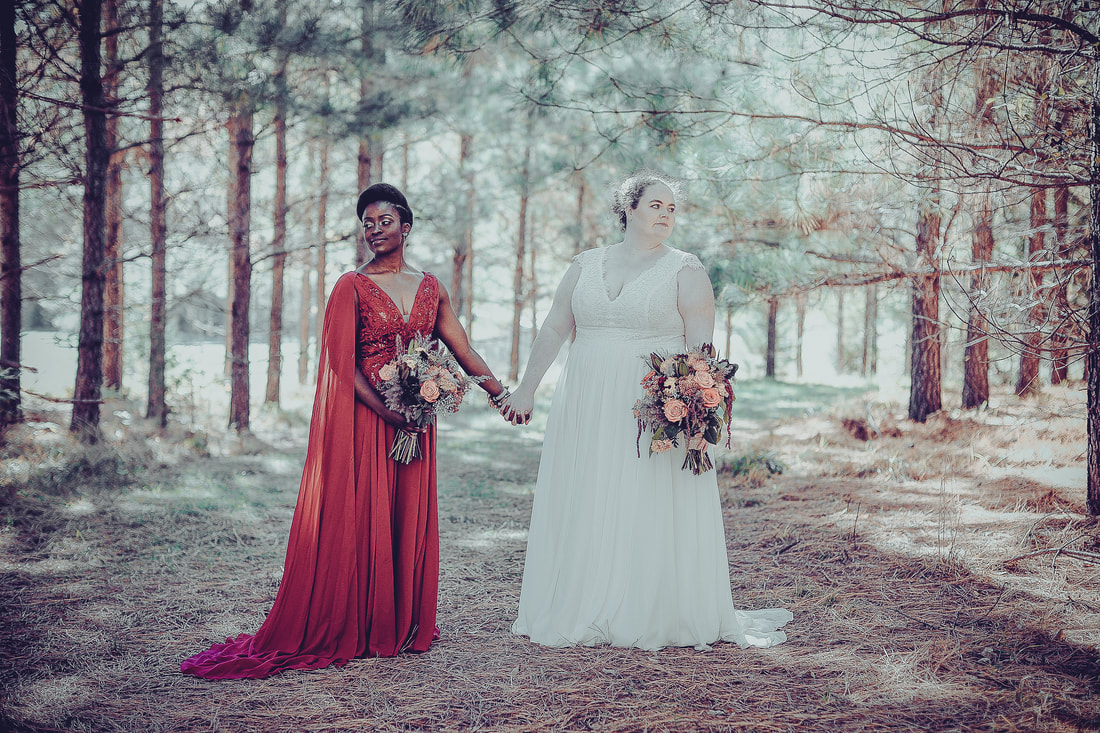|
Wedding favors have changed — and in many cases for the better. Favors have evolved from the inexpensive trinkets purchased in bulk into more personalized mementos that guests can cherish. Today’s couples are interested in customizing their weddings and offering guests something meaningful, or at the very least, edible, so that favors don’t immediately get relegated to the trash can. Favors have moved from “goodie bags” toward items that are experimental and fun. Here are some wedding favor trends that couples may want to incorporate into their own celebrations. Experience gifts Instead of a candle or a monogrammed cake server, think of experiences to offer guests. A coupon for free drinks at a nearby brewery, a tour of a local attraction while guests are in town or a group excursion for guests attending a destination wedding can be fun and will help guests create lasting memories. Welcome bags Rather than take-home bags, welcome bags have replaced the traditional favor trinket at some weddings. Many weddings have become multiday events that ask guests traveling from out of town to attend a wedding weekend. To help greet them and make their experience memorable, couples may fill a gift bag with items guests can use or enjoy during their stay — like a bottle of locally produced wine or some handmade soaps from a nearby shopkeeper. Charitable donations Some couples feel that favors are wasteful and would rather set aside a portion of their wedding budgets toward giving back. In such situations, a donation to charity in guests’ names can be the way to go. Guests can vote on two favorite charities advertised on a special table at the wedding reception. The one with the most votes will get the proceeds. Late-night snacks After a night of celebrating, some guests may want the festivities to continue, but may need some extra sustenance to make it through a few more hours. Some couples are eschewing traditional favors in lieu of making room for extra food or beverage expenses that can include after-party treats. These may run the gamut from wood-fired pizzas to food truck vendors to extra desserts. A tasty take-home option also may be given, such as fresh zeppolis or beignets, or even a personalized bottle of wine. Even if the food and drink is not consumed right away, there’s a good chance it will hit the spot when guests return to their hotel rooms. Wedding favors are changing to keep up with the times and keep guests feeling extra special.
0 Comments
Tips for Choosing the Right Wedding Photographer
Choosing the right photographer for your wedding is essential to getting the perfect photos. Here are a few tips for choosing the right wedding photographer: 1. Research your options: Take the time to research different wedding photographers and find one who is the perfect fit for your vision. Look at the photographer's portfolio and make sure their style matches what you are looking for. 2. Set a budget: Have an idea of your budget before you start looking for a photographer. This will help you narrow down your options and ensure you get the best deal. 3. Ask questions: Ask the photographer about their experience, style, and packages. Make sure you have a good understanding of what is included before you commit to anything. 4. Meet in person: If possible, meet with the photographer to get a better idea of their personality and style. This will help you decide if they are the right fit for your wedding. 5. Read reviews: Read reviews of the photographer online to get an idea of their reputation. Make sure to read a variety of reviews, both good and bad, to get an accurate picture. Creative Ideas for Getting the Most Out of Your Wedding Photos
|
| From traditional portraits to candid shots and creative ideas, wedding photography is about capturing the love and joy of the occasion. The best wedding photographers will be able to capture the day's emotions, ensuring that each image tells the story of the couple's experience. In order to get the most out of your wedding photos, it's important to plan ahead and to work with a professional photographer who understands your vision. In addition to choosing the right photographer, here are some tips for planning your wedding day photography and making sure you get the perfect pictures. About the author: Crystal Vandegrift is the owner of Crystal Image Photography based in Central Virginia she can be reached at cip4you@gmail.com |
While your wedding is a period of ecstasy, joy and fulfillment for you, we understand that certain inevitable circumstances such as Covid-19 may prove to be an obstacle. A wedding is the most critical turn in an individual's life, a special occasion that one has had dreams of for years. You may have plans of spending it with those who matter, and we want to help you while you do that.
Therefore, we present this article specifically dedicated to all you folks who are getting ready for their momentous day and fear that the pandemic may hinder your dream wedding. You don't have to put an end to your ambitions; however, you need to take a few precautions, and we, as your helpful wedding guides, will be of assistance in this regard. Let's get started!
We know that a mask does smudge the lipstick, but we have to be cautious, right? Remember! Prevention is always better than treatment, and we don't want you to get infected at any cost! There is no rulebook as to the ways one can look glamorous while prioritizing their safety.
Be it maxi dresses or shimmery gowns, anything will look good; however, safety procedures are of immense significance in the pandemic. (Hint: You could mention these safety protocols on your wedding card before sending them to your close ones) That way, they have no chance of forgetting to wear masks on your extra-special day.
That way, no opportunity for anyone to get infected and complain later on. Instead, your efforts in having conducted your wedding in such a smooth, thoughtful way will be appreciated by people. Safety first, and after that comes the fun guys!
Virtual events have become mainstream during the pandemic anyway, so why not take advantage of this opportunity. Send your loved ones their wedding invitations, and ask them to keep their WIFI connections, food, and drinks ready for your day.
From make-up to fancy hairstyles, you can do anything with just enough practice. Doing this will eliminate any outsider's physical contact with you and diminish your chances of getting infected.
Conclusion:
Following a pandemic, precautions do not mean you have to compromise on all the arrangements you had in mind for your wedding. It means that you have to exercise caution and deliberation in your wedding planning. You have to prioritize safety and health above all.
Therefore, we present this article specifically dedicated to all you folks who are getting ready for their momentous day and fear that the pandemic may hinder your dream wedding. You don't have to put an end to your ambitions; however, you need to take a few precautions, and we, as your helpful wedding guides, will be of assistance in this regard. Let's get started!
- No-touch policies:
- Sanitization and Masks to the rescue:
We know that a mask does smudge the lipstick, but we have to be cautious, right? Remember! Prevention is always better than treatment, and we don't want you to get infected at any cost! There is no rulebook as to the ways one can look glamorous while prioritizing their safety.
Be it maxi dresses or shimmery gowns, anything will look good; however, safety procedures are of immense significance in the pandemic. (Hint: You could mention these safety protocols on your wedding card before sending them to your close ones) That way, they have no chance of forgetting to wear masks on your extra-special day.
- Safe seating:
That way, no opportunity for anyone to get infected and complain later on. Instead, your efforts in having conducted your wedding in such a smooth, thoughtful way will be appreciated by people. Safety first, and after that comes the fun guys!
- Digitalize:
Virtual events have become mainstream during the pandemic anyway, so why not take advantage of this opportunity. Send your loved ones their wedding invitations, and ask them to keep their WIFI connections, food, and drinks ready for your day.
- Showcase those skills:
From make-up to fancy hairstyles, you can do anything with just enough practice. Doing this will eliminate any outsider's physical contact with you and diminish your chances of getting infected.
- Embrace the outdoors:
Conclusion:
Following a pandemic, precautions do not mean you have to compromise on all the arrangements you had in mind for your wedding. It means that you have to exercise caution and deliberation in your wedding planning. You have to prioritize safety and health above all.
No two weddings are the same. Some couples go to great lengths to personalize their weddings, while others make a few minor tweaks to traditional components to make ceremonies and receptions more reflective of their style and the sentiments they hope to convey.
Embracing modern trends is one way couples have looked to set their weddings apart from traditional ceremonies. There are no rules governing weddings, and that affords couples certain freedoms as they seek to incorporate a modern sensibility into the festivities. For example, couples can modernize certain components of their weddings while remaining loyal to more traditional elements, or they can fully embrace a modern aesthetic. That choice of how modern to make a wedding is up to the couple tying the knot, but the following are some ways to give weddings a modern touch.
· Leave a small carbon footprint. Eco-conscious couples can embrace an environmentalist ethos when planning their weddings by doing everything they can to eliminate waste and promote conservation. Send electronic invitations and save-the-date cards in lieu of paper alternatives and choose a reception venue that serves only locally sourced food and beverages. In lieu of wedding favors, which tend to be individually wrapped, make a donation in guests' names to a local environmental group and share that information with loved ones. When picking a hotel for guests, find lodging that incorporates sustainability into its day-to-day operations.
· Retire certain traditions. Couples need not feel pressured to incorporate traditions that no longer reflect modern sensibilities. It's up to couples to determine which traditions to retire, but customs like the garter toss and bouquet toss may no longer resonate with modern couples or their guests. In addition, brides who want to be walked down the aisle by both of their parents, as opposed to just their father, should not hesitate to do so.
· Look for a modern venue. One of the most awe-inspiring ways to give a wedding a modern touch is to choose a venue that reflects a modern aesthetic. Vaulted ceilings, white walls and floor-to-ceiling windows can create a clean, modern feel. Outdoor ceremonies also can create a modern ambiance.
· Adjust your attire. Black tuxedos and white wedding dresses are among the first things to come to mind when imagining traditional weddings. Couples can stay formal but embrace a more modern look by choosing more colorful tuxes for grooms and groomsmen and picking a wedding gown with a flair of color. Brides also can allow bridesmaids to pick their own bridesmaid dresses to expand the modern look even further.
Embracing modern trends is one way couples have looked to set their weddings apart from traditional ceremonies. There are no rules governing weddings, and that affords couples certain freedoms as they seek to incorporate a modern sensibility into the festivities. For example, couples can modernize certain components of their weddings while remaining loyal to more traditional elements, or they can fully embrace a modern aesthetic. That choice of how modern to make a wedding is up to the couple tying the knot, but the following are some ways to give weddings a modern touch.
· Leave a small carbon footprint. Eco-conscious couples can embrace an environmentalist ethos when planning their weddings by doing everything they can to eliminate waste and promote conservation. Send electronic invitations and save-the-date cards in lieu of paper alternatives and choose a reception venue that serves only locally sourced food and beverages. In lieu of wedding favors, which tend to be individually wrapped, make a donation in guests' names to a local environmental group and share that information with loved ones. When picking a hotel for guests, find lodging that incorporates sustainability into its day-to-day operations.
· Retire certain traditions. Couples need not feel pressured to incorporate traditions that no longer reflect modern sensibilities. It's up to couples to determine which traditions to retire, but customs like the garter toss and bouquet toss may no longer resonate with modern couples or their guests. In addition, brides who want to be walked down the aisle by both of their parents, as opposed to just their father, should not hesitate to do so.
· Look for a modern venue. One of the most awe-inspiring ways to give a wedding a modern touch is to choose a venue that reflects a modern aesthetic. Vaulted ceilings, white walls and floor-to-ceiling windows can create a clean, modern feel. Outdoor ceremonies also can create a modern ambiance.
· Adjust your attire. Black tuxedos and white wedding dresses are among the first things to come to mind when imagining traditional weddings. Couples can stay formal but embrace a more modern look by choosing more colorful tuxes for grooms and groomsmen and picking a wedding gown with a flair of color. Brides also can allow bridesmaids to pick their own bridesmaid dresses to expand the modern look even further.
Couples who want to find the best photographer for their wedding day can ask several questions before making their final decision.
Various components combine to make weddings beautiful and memorable. Couples rely on photographers to capture the smiles and moments that helped make their events unique and to ensure the big day is remembered for years to come.
The trusted wedding resource The Knot notes that an internal study found that, among 27,000 couples who got married in 2021, an average of $2,400 was spent on a wedding photographer to document their big day.
Couples who want to find the best photographer for their wedding day can ask several questions before making their final decision.
What style do you specialize in?
Photographers may be able to shoot various styles of photos, but may specialize in a specific type. For example, some photographers specialize in photojournalism, while others may excel at portraiture. Going with a photographer who has the most expertise shooting the style you prefer will help produce the desired results.
Who will be shooting my wedding?
Certain photography studios have several photographers working under one roof. Just because you meet with one does not necessarily mean that photographer will be on site, unless it is specified in the contract.
Have you ever worked at my venue before?
Photographers may be familiar with several local wedding venues and houses of worship. A photographer who has experience working in the locations where couples will tie the knot and subsequently celebrate might produce the best results, but lack of experience with particular venues need not exclude other professionals.
Can we see a full gallery of a recent wedding?
According to Brides magazine, unlike an album or a highlight gallery, a full gallery provides a better sense of a photographer's style and attention to detail.
Various components combine to make weddings beautiful and memorable. Couples rely on photographers to capture the smiles and moments that helped make their events unique and to ensure the big day is remembered for years to come.
The trusted wedding resource The Knot notes that an internal study found that, among 27,000 couples who got married in 2021, an average of $2,400 was spent on a wedding photographer to document their big day.
Couples who want to find the best photographer for their wedding day can ask several questions before making their final decision.
What style do you specialize in?
Photographers may be able to shoot various styles of photos, but may specialize in a specific type. For example, some photographers specialize in photojournalism, while others may excel at portraiture. Going with a photographer who has the most expertise shooting the style you prefer will help produce the desired results.
Who will be shooting my wedding?
Certain photography studios have several photographers working under one roof. Just because you meet with one does not necessarily mean that photographer will be on site, unless it is specified in the contract.
Have you ever worked at my venue before?
Photographers may be familiar with several local wedding venues and houses of worship. A photographer who has experience working in the locations where couples will tie the knot and subsequently celebrate might produce the best results, but lack of experience with particular venues need not exclude other professionals.
Can we see a full gallery of a recent wedding?
According to Brides magazine, unlike an album or a highlight gallery, a full gallery provides a better sense of a photographer's style and attention to detail.
Will photos be color balanced and retouched?
Skilled photographers are capable of capturing winning photos. But photos can be enhanced further in the studio with retouching software to bring out specific effects. Some photographers will polish all proofs, while others only will work on the images ultimately ordered. Confirm retouching details before signing the contract.
What's included in the photo packages?
A detailed price list helps you compare one photographer to another and decide which elements are covered. Additional prints, having a photographer's assistant, ordering albums for the parents, or ordering a large framed print can alter costs significantly. Explore all prices to ensure you're getting the best value. In addition, consider how many hours of event coverage are included in the price.
What is the payment timeline?
Photographers may accept deposits for their services but expect a different timeline of payment. Some may require payment in full before the wedding, while others may offer a payment plan that includes a final payment when picking up proofs or albums.
Wedding photography is one of the essential elements of a wedding and helps tell the story of couples' special day.
Asking key questions can help couples find a photographer who will produce the desired results.
Will photos be color balanced and retouched?
Skilled photographers are capable of capturing winning photos. But photos can be enhanced further in the studio with retouching software to bring out specific effects. Some photographers will polish all proofs, while others only will work on the images ultimately ordered. Confirm retouching details before signing the contract.
What's included in the photo packages?
A detailed price list helps you compare one photographer to another and decide which elements are covered. Additional prints, having a photographer's assistant, ordering albums for the parents, or ordering a large framed print can alter costs significantly. Explore all prices to ensure you're getting the best value. In addition, consider how many hours of event coverage are included in the price.
What is the payment timeline?
Photographers may accept deposits for their services but expect a different timeline of payment. Some may require payment in full before the wedding, while others may offer a payment plan that includes a final payment when picking up proofs or albums.
Wedding photography is one of the essential elements of a wedding and helps tell the story of couples' special day.
Asking key questions can help couples find a photographer who will produce the desired results.
Looking for ways to have a Zero-waste wedding? Check out the guild below for tons of tips!
It covers important topics such as:
It covers important topics such as:
- An in-depth look at sustainable and ethical weddings - why they are important and how choosing a green wedding helps reduce the strain on the environment.
- Eye-opening facts and figures about the carbon footprint and waste generated by weddings and the wedding industry as a whole (did you know that around 4,910 tonnes of unrecyclable plastic is used up by weddings annually?).
- How to plan a sustainable wedding - including plenty of tips on finding green wedding planners and suppliers, eco-friendly wedding venues, organic and zero-waste food and catering, and other helpful resources.
- Other useful green wedding resources, organisations, and zero-waste tips and advice to help make weddings more ethically conscious and environmentally friendly.
Article originally posted on The Knot.com
The good news is that you can get a lot done.
When it comes to important life events, weddings easily top most folks’ lists as one of the biggest days of their lives in terms of family involvement, lifelong commitment, and financial investment. So while there have been massive lockdowns nationwide (and abroad) and an increasing number of restrictions due to the coronavirus pandemic, many couples who've planned for months, or even years, are searching for ways to find a way forward or plan ahead for possible postponements.
Wedding retailers nationwide are taking quick steps to react to the ever-evolving coronavirus news, with many closing their brick-and-mortar stores to prevent the spread of the virus and practice safe social distancing. (Wedding planners, too, are advising couples to listen to officials and health organizations, first and foremost.) With so much hanging in limbo right now, here’s what to know about how to responsibly plan your upcoming wedding amid a global pandemic.
Book your appointment with Lovely Bride now!SPONSORED BY LOVELY BRIDE
Communicate With Your PartnerBefore diving into anything else, take the most important step, which is communicating with your partner first. “Work with your significant other, gather your thoughts, and establish your priorities,” says celebrity event planner Edward Perotti. “Ask yourself: Is a specific date most important to you? Or is it a meaningful venue? Is having the wedding the same size a priority, or can you scale to provide more options? Is there a vendor you want to work with no matter what? Then read your contracts, make a list of your ideal options, and start with those phone calls.”
Whether you’re quarantined at home with your partner or hundreds of miles away, you can spend this time working through communication exercises. Services like Lasting can help you navigate possible premarital conversations—without excuses that you’re too busy or inundated with dinners, in-person meetings and more.
Finally, perspective is key. “Remember throughout this process that it’s important not to focus on how things should have been, but to focus on how they can be,” he adds. Indeed, planners far and wide have echoed this sentiment and asked for couples to have an attitude that is solution-oriented as all sides are currently impacted by the ongoing pandemic.
Shift Your Schedules If You’ve Postponed
Now is an ideal time to restructure those calendars and get organized. Talk to your planner consistently or shift your calendar dates where necessary if you’re planning on your own. Communicate accordingly with all vendors once you've locked down a new date.
“Let me be blunt: if your wedding is planned for anytime between April and June, you need to accept that fact that postponement may be necessary,” says Perotti. “Now that the Band-Aid has been ripped off, what’s next?”
Ask about your venue’s postponement policies, and be patient with anyone you speak with; they’re likely scrambling to try to accommodate for multiple nervous couples at the same time. Check your wedding insurance policy and see what will be covered, and if there’s anything that can be negotiated given the unusual circumstances. Read here for more tips if you’ve postponed your nuptials due to COVID-19.
“We are all sailing in unknown waters right now,” Perotti says. “What we can do is partner together. Know that your event planner, venue, caterer, photographer and florist are your team members, and they want to make your wedding [the best possible]. The dream might be slightly re-imagined, but it’s still your dream, nonetheless.”
Seek Inspiration OnlineIf you have yet to nail down your wedding theme, take The Knot Style Quiz to narrow down venue options, color palettes and even floral arrangement ideas. The quiz is an easy starting point; plus, it connects you to the best vendors who can execute your vision in your chosen destination.
While shopping in-store may not be a viable option for the foreseeable future, some brands are offering additional support online for brides looking to get all their ducks in a row amid the chaos. BHLDN, which is temporarily closing its physical locations, recently launched The Book, an online resource with a quiz to find your perfect wedding colors, hair and makeup tutorials, and dress decoders, so brides can be as well-informed and inspired as possible. Of course, there are plenty of articles to help you determine what silhouette or types of accessories work best for your body too. Head over to our ideas and etiquette page for more.
“Instagram, Facebook, Pinterest and social media are gold mines for inspiration and shopping,” says Bella Belle co-founder Veronyca Kwan. “We’re always an email away for personalized shoe consultations.”
Create an 'Inspiration' BoardIf you have glue, scissors and poster board, create a physical vision board (or a virtual one on the platform of your choosing). Look at this time of self-quarantine as a gift of focused time and energy that you can use toward doing the proper research to dream up the perfect event, from florals to centerpieces to invitation designs.
Even though it may be tough to be patient with the overwhelming number of mini-deadlines and tasks that come with the wedding planning journey, staying calm and utilizing this time will ultimately be helpful to the overall planning process of your big day.
Technology and social media apps have made it much easier to get planning accomplished from a distance. If you’re still in search of vendors, check out The Knot Marketplace for a comprehensive overview of wedding pros, ranging from planners to caterers and top-tier florists across the country.
Couples who’ve previously hired these same vendors have left reviews about their own experiences. The research is also in one place: you can scan their websites, scroll through their social media pages for past weddings, and review what others have said about these businesses.
Another part of the process is having actual one-on-one conversations with potential members of your wedding team. By using tools like FaceTime, Google Hangouts and Skype, interviewing DJs, live bands, photographers and videographers is no problem. They can walk you through presentations of their past work and you’ll still be able to capture their work style over video.
“You can really get a sense of their personality and if they will be the right fit for you," says Marina Birch, owner of Birch Events in Chicago. From there, keep in touch with your chosen vendors digitally to progress through your to-do list. And, of course, for the comfort of knowing that like you, they’re also busy planning from their ends.
Find Alternative Ways to Shop for Your GownStart by researching local salons in your area to see what designers they carry within your budget range. This will help you narrow down the ideal boutiques you'd like to visit once group gathering restrictions are no longer enacted by the CDC. Plus, your loved ones can look forward to a fun date where you model dresses, sip bubbly, and catch up—together.
Go Online for Your Suits and Tuxes TooFor grooms, ask your partner to get out a measuring tape to work through your measurements. A quick YouTube search will let you know what measurements are crucial to know for suit sizes (this sizing guide from The Black Tux is a great place to start!). There are a good number of tux rental and sales sites where you can then opt to shop. Tell your groomsmen to do the same.
If you’re concerned about your color palette, turn to brands like The Tie Bar and Birdy Grey for groomsmen accessories (bowties and neckties) in a range of hues that'll match the bridesmaid dresses.
Design Your Wedding BandsMany jewelry shops remain closed due to group gathering measures, but that doesn’t mean you can’t get started on designing your wedding band. (Or, for some, the engagement ring!)
Talk to your jeweler about how you’d like your band to rest against your engagement ring or what you'd like your partner’s ring to look like as well. If you're designing an engagement ring, digital technology has advanced to allow for real life simulations of ring shapes and sizes against hands. There are plenty of options out there. Brands like Ritani and Blue Nile are also great places to envision possible jewelry pieces online. See how your rings potentially stack and whether solid gold or platinum looks best on your partner’s hand.
Build Your RegistryYou might have been putting it off, but now is a good time to sit down with your partner and seek out registry products and other types of newlywed experiences to enhance your life in marriage. After all, there’s no better way to identify what your household needs might be than to, well, be at home all day.
Most retailers have online shops where you can peruse items from the comfort of your couch, including Crate & Barrel and trendy sibling CB2. Other traditional retailers like Williams-Sonoma, Target and Bed Bath & Beyond also have e-commerce experiences where you can easily add items to your bigger registry. More specialty shops like REI, Anthropologie and Traveler's Joy also have extensive offerings online (sometimes even more than what they can carry in stores!), so take this opportunity to get creative and start intentionally building your registry online.
MINTEDIf there’s a time to lean into purchasing items for the wedding day, it’s now. Companies like Elli are offering free reprints for change-the-dates, while other brands like Minted and The Knot Shop offer a range of personalized products. With favors and décor, our current advice is to leave off your wedding date (for now) and instead, lean into your wedding insignia or custom emblem.
With local artisans also practicing social distancing, those who are able to help decorate and embellish your venue with beautiful pieces are also on standby. Go to platforms like Etsy and more.
Take a Breath (You’ve Got This!)Wedding planning is a big undertaking in and of itself, and the added uncertainty of the coronavirus pandemic can make even the calmest bride feel anxious about her big day. But one of the best ways to move forward is to do so knowing that you’ve got a team of supportive loved ones who have your back, and that this, too, shall pass.
“Take the time to rejuvenate and reach out to your friends and family whom you have not had the time to talk to,” says Kwan. “Do a bit of spring cleaning or watch old movies. Share positivity in these challenging times.”
After all, if there were ever a time to lean into the process of thinking about why you’re hosting a wedding in the first place—to bring all your loved ones together in one place to celebrate your new life chapter—that time is now. Focusing on gratitude and community are key to navigating the chaos.
The good news is that you can get a lot done.
When it comes to important life events, weddings easily top most folks’ lists as one of the biggest days of their lives in terms of family involvement, lifelong commitment, and financial investment. So while there have been massive lockdowns nationwide (and abroad) and an increasing number of restrictions due to the coronavirus pandemic, many couples who've planned for months, or even years, are searching for ways to find a way forward or plan ahead for possible postponements.
Wedding retailers nationwide are taking quick steps to react to the ever-evolving coronavirus news, with many closing their brick-and-mortar stores to prevent the spread of the virus and practice safe social distancing. (Wedding planners, too, are advising couples to listen to officials and health organizations, first and foremost.) With so much hanging in limbo right now, here’s what to know about how to responsibly plan your upcoming wedding amid a global pandemic.
Book your appointment with Lovely Bride now!SPONSORED BY LOVELY BRIDE
Communicate With Your PartnerBefore diving into anything else, take the most important step, which is communicating with your partner first. “Work with your significant other, gather your thoughts, and establish your priorities,” says celebrity event planner Edward Perotti. “Ask yourself: Is a specific date most important to you? Or is it a meaningful venue? Is having the wedding the same size a priority, or can you scale to provide more options? Is there a vendor you want to work with no matter what? Then read your contracts, make a list of your ideal options, and start with those phone calls.”
Whether you’re quarantined at home with your partner or hundreds of miles away, you can spend this time working through communication exercises. Services like Lasting can help you navigate possible premarital conversations—without excuses that you’re too busy or inundated with dinners, in-person meetings and more.
Finally, perspective is key. “Remember throughout this process that it’s important not to focus on how things should have been, but to focus on how they can be,” he adds. Indeed, planners far and wide have echoed this sentiment and asked for couples to have an attitude that is solution-oriented as all sides are currently impacted by the ongoing pandemic.
Shift Your Schedules If You’ve Postponed
Now is an ideal time to restructure those calendars and get organized. Talk to your planner consistently or shift your calendar dates where necessary if you’re planning on your own. Communicate accordingly with all vendors once you've locked down a new date.
“Let me be blunt: if your wedding is planned for anytime between April and June, you need to accept that fact that postponement may be necessary,” says Perotti. “Now that the Band-Aid has been ripped off, what’s next?”
Ask about your venue’s postponement policies, and be patient with anyone you speak with; they’re likely scrambling to try to accommodate for multiple nervous couples at the same time. Check your wedding insurance policy and see what will be covered, and if there’s anything that can be negotiated given the unusual circumstances. Read here for more tips if you’ve postponed your nuptials due to COVID-19.
“We are all sailing in unknown waters right now,” Perotti says. “What we can do is partner together. Know that your event planner, venue, caterer, photographer and florist are your team members, and they want to make your wedding [the best possible]. The dream might be slightly re-imagined, but it’s still your dream, nonetheless.”
Seek Inspiration OnlineIf you have yet to nail down your wedding theme, take The Knot Style Quiz to narrow down venue options, color palettes and even floral arrangement ideas. The quiz is an easy starting point; plus, it connects you to the best vendors who can execute your vision in your chosen destination.
While shopping in-store may not be a viable option for the foreseeable future, some brands are offering additional support online for brides looking to get all their ducks in a row amid the chaos. BHLDN, which is temporarily closing its physical locations, recently launched The Book, an online resource with a quiz to find your perfect wedding colors, hair and makeup tutorials, and dress decoders, so brides can be as well-informed and inspired as possible. Of course, there are plenty of articles to help you determine what silhouette or types of accessories work best for your body too. Head over to our ideas and etiquette page for more.
“Instagram, Facebook, Pinterest and social media are gold mines for inspiration and shopping,” says Bella Belle co-founder Veronyca Kwan. “We’re always an email away for personalized shoe consultations.”
Create an 'Inspiration' BoardIf you have glue, scissors and poster board, create a physical vision board (or a virtual one on the platform of your choosing). Look at this time of self-quarantine as a gift of focused time and energy that you can use toward doing the proper research to dream up the perfect event, from florals to centerpieces to invitation designs.
Even though it may be tough to be patient with the overwhelming number of mini-deadlines and tasks that come with the wedding planning journey, staying calm and utilizing this time will ultimately be helpful to the overall planning process of your big day.
Technology and social media apps have made it much easier to get planning accomplished from a distance. If you’re still in search of vendors, check out The Knot Marketplace for a comprehensive overview of wedding pros, ranging from planners to caterers and top-tier florists across the country.
Couples who’ve previously hired these same vendors have left reviews about their own experiences. The research is also in one place: you can scan their websites, scroll through their social media pages for past weddings, and review what others have said about these businesses.
Another part of the process is having actual one-on-one conversations with potential members of your wedding team. By using tools like FaceTime, Google Hangouts and Skype, interviewing DJs, live bands, photographers and videographers is no problem. They can walk you through presentations of their past work and you’ll still be able to capture their work style over video.
“You can really get a sense of their personality and if they will be the right fit for you," says Marina Birch, owner of Birch Events in Chicago. From there, keep in touch with your chosen vendors digitally to progress through your to-do list. And, of course, for the comfort of knowing that like you, they’re also busy planning from their ends.
Find Alternative Ways to Shop for Your GownStart by researching local salons in your area to see what designers they carry within your budget range. This will help you narrow down the ideal boutiques you'd like to visit once group gathering restrictions are no longer enacted by the CDC. Plus, your loved ones can look forward to a fun date where you model dresses, sip bubbly, and catch up—together.
Go Online for Your Suits and Tuxes TooFor grooms, ask your partner to get out a measuring tape to work through your measurements. A quick YouTube search will let you know what measurements are crucial to know for suit sizes (this sizing guide from The Black Tux is a great place to start!). There are a good number of tux rental and sales sites where you can then opt to shop. Tell your groomsmen to do the same.
If you’re concerned about your color palette, turn to brands like The Tie Bar and Birdy Grey for groomsmen accessories (bowties and neckties) in a range of hues that'll match the bridesmaid dresses.
Design Your Wedding BandsMany jewelry shops remain closed due to group gathering measures, but that doesn’t mean you can’t get started on designing your wedding band. (Or, for some, the engagement ring!)
Talk to your jeweler about how you’d like your band to rest against your engagement ring or what you'd like your partner’s ring to look like as well. If you're designing an engagement ring, digital technology has advanced to allow for real life simulations of ring shapes and sizes against hands. There are plenty of options out there. Brands like Ritani and Blue Nile are also great places to envision possible jewelry pieces online. See how your rings potentially stack and whether solid gold or platinum looks best on your partner’s hand.
Build Your RegistryYou might have been putting it off, but now is a good time to sit down with your partner and seek out registry products and other types of newlywed experiences to enhance your life in marriage. After all, there’s no better way to identify what your household needs might be than to, well, be at home all day.
Most retailers have online shops where you can peruse items from the comfort of your couch, including Crate & Barrel and trendy sibling CB2. Other traditional retailers like Williams-Sonoma, Target and Bed Bath & Beyond also have e-commerce experiences where you can easily add items to your bigger registry. More specialty shops like REI, Anthropologie and Traveler's Joy also have extensive offerings online (sometimes even more than what they can carry in stores!), so take this opportunity to get creative and start intentionally building your registry online.
MINTEDIf there’s a time to lean into purchasing items for the wedding day, it’s now. Companies like Elli are offering free reprints for change-the-dates, while other brands like Minted and The Knot Shop offer a range of personalized products. With favors and décor, our current advice is to leave off your wedding date (for now) and instead, lean into your wedding insignia or custom emblem.
With local artisans also practicing social distancing, those who are able to help decorate and embellish your venue with beautiful pieces are also on standby. Go to platforms like Etsy and more.
Take a Breath (You’ve Got This!)Wedding planning is a big undertaking in and of itself, and the added uncertainty of the coronavirus pandemic can make even the calmest bride feel anxious about her big day. But one of the best ways to move forward is to do so knowing that you’ve got a team of supportive loved ones who have your back, and that this, too, shall pass.
“Take the time to rejuvenate and reach out to your friends and family whom you have not had the time to talk to,” says Kwan. “Do a bit of spring cleaning or watch old movies. Share positivity in these challenging times.”
After all, if there were ever a time to lean into the process of thinking about why you’re hosting a wedding in the first place—to bring all your loved ones together in one place to celebrate your new life chapter—that time is now. Focusing on gratitude and community are key to navigating the chaos.
Article originally posted on The Knot.com
One significant consequence of the coronavirus pandemic has been the mass postponement of spring, and now summer 2020 weddings, as couples are currently in search of future dates. Updated group gathering guidelines from the CDC (Centers for Disease Control and Prevention) and the federal government have prompted both couples and vendors to reschedule their upcoming nuptials in the months ahead. As one planner has said, “It is a giant game of chess."
As the situation continues to evolve in the U.S., most couples are now concerned about summer weddings and beyond. “I feel for couples: this is supposed to be the happiest time,” says Jung Lee, founder and event architect of Fête Events New York. “With that said, people more than ever need to see hope, celebration and togetherness in a place where they feel safe.”
Book your appointment with Lovely Bride now!SPONSORED BY LOVELY BRIDE
The most important advice for all couples who’ve set 2020 wedding dates is to be informed and proactive with next steps. “You must plan and move forward,” Lee advises. “Set a date [if it applies to you] and tell your guest list. Everyone will understand and it’ll help them better prepare.” Many pros are currently encouraging couples who still want to marry in 2020 to consider Monday weddings. The reasons for this are straightforward: the majority of your chosen vendors will be available on a Monday over, say, a Saturday. The day also falls right off the tail of a weekend, so your guests will have the flexibility of enjoying the welcome dinner and other festivities prior to the nuptials.
We spoke to multiple planners about prioritizing your checklist now, based on your original wedding date. As you navigate this tricky time, let this advice guide you to making a decision that works best for you and your loved ones.
In this article:
- Original March/April Dates, What to Do
- Original May Dates, What to Do
- Original June Dates, What to Do
- Original Late June Dates, What to Do
- Original July/August Dates, What to Do
- Original September Dates and On, What to Do
Original March/April Dates, What to DoThe Move: Postpone
Most couples with spring 2020 weddings have undergone the process of rescheduling their weddings or have since secured a new date. “We’ve told them to postpone as the situation with the virus changes rapidly, and the length of time [for social distancing] keeps getting extended,” says event planner JoAnn Gregoli. “We are encouraging these couples to move their weddings to the fall or spring of 2021.”
Even then, planners are offering backup-backup dates due to the nature of COVID-19. “I’ve secured two to four backups options for my couples,” says Lee.
After postponing or making that decision, you must notify your guests with a change-the-date alert. "You'll need to communicate a change in date and location to all your guests, which should be clear and thoughtful,” says the Mavinhouse Events team. “If you are downsizing or postponing, say it in a respectful way and thank them for the efforts they've made already to be a part of your celebration. Include as much information about cancellations for flights and contact info for accommodations.”
Going digital, the planners say, is “the most effective way to” pass along any relevant information.
Finally, here’s how to address vendors at this time. We encourage couples to exercise flexibility and patience as many small businesses have been impacted by the health crisis, as well. "Couples with wedding insurance should closely review their policies for verbiage that includes Act of God, Force Majeure, or Other unforeseen and unavoidable circumstances beyond the two parties control,” says the Mavinhouse team. “All contracts are different and may include variations of the above verbiage, but looking closely for those types of words. It’ll help you see if changes to your wedding plans as a result of the coronavirus would be covered by your insurance policy.”
With insurance, the planners have tangible items for you to follow. “We recommend, should you have to utilize your wedding insurance in some capacity, to gather all of your vendor contracts, make a list of the deposits you’ve already made, as well as a list of the remaining money you have outstanding to vendors,” they advise. “The more information you have to provide your insurance agent, the easier the process will be for you."
Original May Dates, What to DoThe Move: Postpone
If you haven’t already, postpone your May wedding too. Most couples have already shifted their weddings through May as the pandemic continues to spread. “The few weddings moving forward at the end of May also now have a backup date for this fall,” says Lee.
"Just like everyone else, venues and vendors are navigating a fluid and unprecedented situation right now. Your venue and your vendors will always want to put their clients first, while maintaining the integrity of their business,” the planners at Mavinhouse Events explain. “If your wedding is before the end of May, you should reach out to your venue and vendor team to discuss your options. Ask about their specific cancellation and postponement policies, alternate dates that are available, and any policies in regards to switching your date to a different season.”
Fall is the preeminent wedding season, far from the case a decade ago when summer weddings ruled. “Remember, fall dates may still be available, but they are considered peak season for venues and vendors. Be sure to ask if you’ll have to pay any sort of premium to switch your date to a peak season time,” the Mavinhouse team notes. This also means you’ll have to be flexible about specific openings if you want to marry in 2020, including possible weekday and holiday wedding postponement options.
Finally, follow the steps in the March/April monthly breakdown above for both contracts, insurance policies and vendor relations.
Original Early June Dates, What to DoThe Move: Postpone
With social distancing measures enacted through the end of April, many couples are now questioning what to do with their June weddings. In short, this month is on the cusp of the eight-week guidance provided by the CDC’s bulletin about limiting group gatherings. "I have advised our clients to consider postponements through the end of June, and at this point, they have all acted on it, moving their weddings and celebrations to October and beyond," says Amy Shey Jacobs of Chandelier Events in New York. "The internal thinking was also, 'Even if business was allowed to resume, would guests even be able to travel or feel comfortable gathering in large groups?' Overall, the sentiment was that June we will still be in some sort of crisis mode."
"While things are still fluid and ever-changing, we are advising our June clients to do what feels most comfortable for them,” says Mavinhouse. “[By] early-April, a client should make a decision on their June wedding. That is our first recommendation. At that time we may have more insight into what the next few months will look like for wedding celebrations and gathering sizes. Being prepared is the most important step.”
Do your homework first. “Today, a client getting married in June can go through their existing contracts to identify any important information on changing the date,” the Mavinhouse team recommends. “And reach out to your vendors about what your options may be."
Continue marking off your checklist items. Check with your respective attire companies (dress boutiques, tuxedo rentals and bespoke services) to see if they will still meet all deadlines for delivery or pickup. If you’re finalizing décor and more, we recommend withholding date stamps from favors and other insignia that could possibly be obsolete.
Original Late June Dates, What to DoThe Move: Postpone; If your wedding is the last weekend of June, make a decision in April.
While the pandemic continues to unfold, it's likely guests and other loved ones might have levels of discomfort regarding travel, group gatherings and more even by late June. "No one has a crystal ball, but based on our clientele, we moved all June events through June 20 to the fall," says Jacobs.
She adds, "Right now, the national ban on gatherings has been extended through April 30, 2020, with state-by-state gatherings and wedding bans in effect for 'the foreseeable future.' We have seen that venues are following suit with their governmental guidelines but many event venues and vendors have been allowing postponements with no penalty well into June. In fact, all of our events at Chandelier Events in June have currently been postponed to the fall in the New York and New Jersey areas."
Add financial volatility, paired with importing and exporting limitations, and Jacobs says something as simple as flowers remain a question mark. "Could they even be imported from abroad [by then]?" she speculates. "That was part of our thinking."
The sooner you move, the better odds you have with securing an ideal date this fall. "As you know, my advice has always been 'the early bird catches the worm,'" Jacobs says. "There are already so many taken dates for weddings in the fall months that were previously schedule. To ensure that a couple would get a good replacement date, we acted very early to work out those dates."
Again, we encourage couples to consider Monday weddings as most of your vendors are currently available on that particular day of the week and it falls right off a weekend.
Original July/August Dates, What to DoThe Move: Monitor in May; Postpone if you’re concerned
The best step a couple marrying this summer can take is to first reach out to the venue to see what’s next. Then, send a note to your vendors to ask which possible dates they have available. By the end of May, most couples marrying in July and August should make a decision.
Since it's peak summer season, most planners are holding off from rescheduling these events for now. "We are advising our July clients to do what feels most comfortable for them,” says the Mavinhouse team. “We are hopeful that given the significant amounts of social distancing and self-isolation that is currently taking place throughout the nation, this will make July events go off without a hitch.”
Some planners are moving quickly and have asked their clients to firm up a decision by the end of April. “Wait and see for both July and August,” Gregoli recommends. “I have asked my clients to make a decision by May 1.”
As you monitor the ongoing pandemic, there is something you can do to get ahead, like discussing options with your vendors. “For today though, it's important to try to remain calm and excited about your wedding plans while keeping an eye on the news and this ever-changing situation," says the Mavinhouse team.
Continue marking off your checklist items. As previously mentioned, withhold from including wedding dates on your décor if they have yet to be printed and it wouldn’t hurt to touch base with your attire companies as well.
Original September Dates and On, What to DoThe Move: Proceed and monitor
The most vigilant couples are now concerned about weddings past September. There is no need to panic at this time as planners are shifting spring weddings into this time frame. If you’ve secured a weekend fall date, then know that you’re in a good place. Continue marking off those checklist items, however, because this fall already appears to be an even busier season for vendors.
Gregoli suggests couples September and on should proceed as planned. Keep in mind that the situation could shift or evolve. Before you sign contracts, review them carefully and make sure you know exactly what is required if you need to reschedule or postpone down the line.
Regardless of your original wedding date, what every couple can do in this moment is reassure themselves that a wedding will happen. “Every person is unique with what they can handle emotionally,” Lee acknowledges. “But it’s important for couples to now go with the flow, because the world has changed. Your love and togetherness is not going to change. People have to stop saying ‘canceling.’ It is about making adjustments to your wedding day. You can’t cancel love.”
About Crystal
Crystal Vandegrift is a wedding photographer covering Virginia, D.C. NC and Maryland.
Interested in being a guest blogger on our site? Contact us below!
Categories
All
Bride Style
Crystal's Clear View
Destination Weddings
Engagements
Featured Weddings
For CIP Brides
For The Home
LGBT Weddings
Photo Tip
Wedding Planning Tips
Wedding Tips
We love Instagram! Check out our feed below and follow us!
What Our Clients Are Saying
Pictures were one of my top priorities for my wedding. I spent a lot of time reading through photographers and even contacting some. I was also pretty nervous, I had never been professionally photographed before. Crystal and her team were SO easy to work with and immediately took away the nerves. I trusted her completely and I am so happy I did. Cannot recommend enough! Ellen - Yorktown VA
If you're looking for an amazing photographer who is relaxed, has experience, and knowledge look no further. Crystal took our engagement and wedding photos. Not only were her photos amazing, but she is extremely responsive to messages and will even help you when planning your big day. It was important to us to work with a photographer who has experience with same sex couples, and Crystal and Casey did a great job capturing everything for my wife and I. We couldn't have asked for a better experience. - Emily - Nellysford, VA
Read more reviews here.




